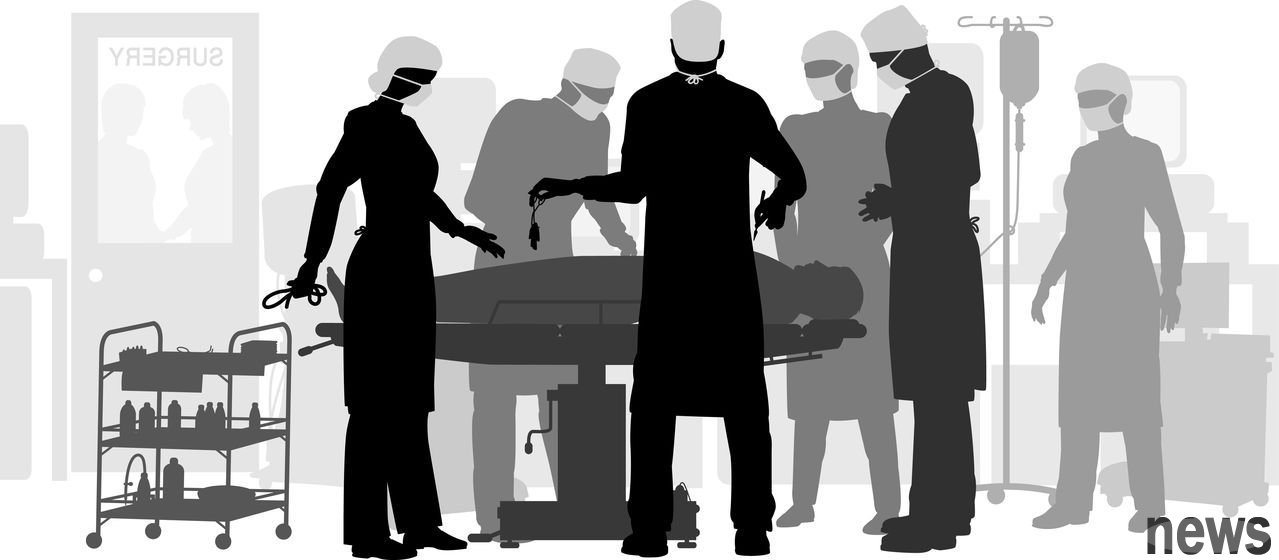 Rejecting the rehabilitation of heart and lungs, sometimes we should not think about whether we can save ourselves, but whether we can live with respect and a certain quality of life after the rescue.
Rejecting the rehabilitation of heart and lungs, sometimes we should not think about whether we can save ourselves, but whether we can live with respect and a certain quality of life after the rescue. DNR, full name is Do-Not-Resuscitate, which means "not performing cardiopulmonary rehabilitation", which means: When a patient suffers from severe illness and is diagnosed by a doctor, it is impossible to avoid the disease course until death, according to the patient or his family's wishes, cardiopulmonary rehabilitation will not be performed, including intragastric tube intubation, external cardiac pressure, and first aid drug injections , heart attack, artificial respiration, or other treatment behaviors, etc.; these options do not necessarily have to be abandoned. Sometimes, &mdash can be considered according to the specific needs of the patient or the family; for example, some patients do not intubate, do not compress their chest, or do not electrocute, but first aid drugs can be given. The main purpose is to avoid ineffective medical treatment, make the patient walk with a strict and reduce pain, and the living can also feel at ease.
In the afternoon, an emergency surgery came. The patient had to undergo an ostomy due to a tumor caused by a tumor in the brain. The patient was over 20 years old and weighed only 30 kilograms. He looked like he had Down's disease. At the same time, he had a combined mental disorder and incomplete development. He could not talk and could not take care of himself. When he was a child, he had several surgeries due to congenital heart disease. Now the patient's heart arrhythmia is happening, and the cardiac chart suddenly jumps from normal heart rhythm to Left bundle branch transmission obstacle (Left bundle branch) Block), and then occasionally, there will be anocardial hyperventricular arrhythmia (PSVT), which will be changed continuously. For some reason, the main caregiver is a 70-year-old girl who has not seen the patient's parents. At that time, I had a few thoughts in my mind. Was this kind of child abandoned by his parents and sent to the child, or did his parents make money to raise such children for work, so they had to leave this place to work in the north? Stories like this about children being abandoned or entrusted are not defeated in our country.
If something happens to the surgery, don't save it.Because this patient has dysplasia, kidney obstruction may cause hypovasive shock, ionic imbalance, and inhaled pneumonia. Moreover, his arrhythmia is ongoing. Such surgery looks a bit dangerous. Before the anesthesia begins, the patient is almost reborn. I remember my classmates often complained to me that when I visited before the anesthesia, I didn’t even look at it. For patients with high risk, I agreed to write nothing in the book; I just told the patient, "When you fall asleep, I will take care of you."
Because I am often complaining, this time I want to say, I want to come and relieve the anesthesia well. The risk is not to cause trouble for everyone …… So I started to talk to my aunt that patients with obstructive kidneys are most afraid of vomiting during anesthesia and inoculation pneumonia. Like him, they have congenital heart disease, arrhythmia, and incomplete development. Whenever aspiration pneumonia occurs, they are inevitably intubated to go to the ward for intubation. , the most serious state may die; and anesthetic drugs will reduce blood pressure. Now the obstruction of the kidney itself may cause the patient to drain water. After the ion is discharged, the ion is unbalanced, which will cause his heart rhythm to become uneven, and may require electric and chest compression at any time. He was originally a little intelligent. After this time, brain hypoxia occurred, and the trend of the medium-temperature changed to vegetative people. It is possible that …… I kept talking and said, and my aunt kept listening and said, "After hearing, I suddenly stopped me, "If something happens to the surgery, don't save ……"
I was suddenly stunned. The surgery room is a place where the knife is used to save lives. Here is a chance for life to begin again. The patient said, "Don't save it." This sentence suddenly made me feel unconscious, contrary to my usual understanding. Then I suddenly realized that the girl was tired …… Although this patient is over 20 years old and should not be related to death, it is in this way. In the country, where there are not many resources, my son has been with him for more than 20 years, so I also got ……
So after I went into the knife room, I saw that my school was about to start anesthesia and instruct me, so I told my school, "If something happens, don't save me."
My school was stunned when I heard that I was like this, and then I began to resist me and said: No! In theory, there must be two conditions for refusing cardiopulmonary rehabilitation, the end-stage and irreversible disease. During the surgery, the interference of multiple factors of anesthesia cannot be ruled out. In addition, many factors such as low blood pressure, ionic imbalance, and arrhythmia are all controllable and do not belong to irreversible diseases. Moreover, the rapid changes in the surgery process are sometimes not allowed to think about whether it is the end-stage disease, which is reversible and irreversible, so we must save it to the end: Of course, I know that it is legally necessary to save it to the end, but do you want to save this patient?
※ This article is excerpted from "Happy Practice: A Person of Anesthesiologist's Practice"."Happy Practice: A Person of Anesthesiologist's Practice"
Author: Active Ejaculation
Publisher: Joint Publishing
Publication Date: 2022/12/01
